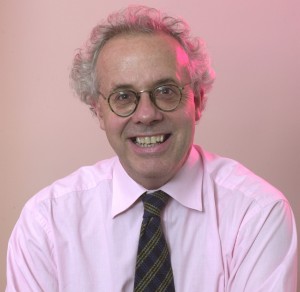 In Britain we have had a row over whether a judge, Elizabeth Butler Sloss, should chair an inquiry into child abuse. Everybody agrees that she has the necessary skills and unquestionable integrity, but she has a conflict of interest: her long dead brother was in the government and may have been involved in covering up child abuse. The case has exposed deep misunderstanding on the nature of conflict of interest.
In Britain we have had a row over whether a judge, Elizabeth Butler Sloss, should chair an inquiry into child abuse. Everybody agrees that she has the necessary skills and unquestionable integrity, but she has a conflict of interest: her long dead brother was in the government and may have been involved in covering up child abuse. The case has exposed deep misunderstanding on the nature of conflict of interest.
The country is in the grip of a moral panic over historical cases of child sexual abuse, with well known entertainers going to prison for abuses they committed 50 years ago. Every day we hear rumours of which “national treasure” (a British cliché) will be next. So the government had to react quickly to the possibility that politicians themselves had covered up abuses. In the rush to appoint a chair to the inquiry, the government probably overlooked Butler Sloss’s conflict of interest, and so she was appointed.
But the conflict immediately came to light, and those who had been abused—horribly familiar with being shoved to one side by the establishment—objected. From their point of view, there was also a broader conflict in that Butler Sloss is very much part of the establishment (a shadowy notion, but essentially the ruling class) that has failed them.
Initially, Butler Sloss decided that she would not resign, but as more voices called on her to stand down, she eventually did.
What struck me about this story is that most commentators mixed up integrity and conflict of interest, somehow concluding that if you had high integrity then conflict of interest was irrelevant. In medicine we have been debating and studying conflict of interest for at least 30 years, and slowly but surely, everybody in medicine is coming to understand that conflict of interest is a state, not a behaviour. You can have the highest integrity, but your judgement can still be compromised by conflict of interest.
We have an advantage in medicine when it comes to understanding this because we are familiar with the need for double blind randomised controlled trials. We know that as the quality of a trial mounts—properly randomised, single blind, double blind—effects size shrinks. The reason that a new drug seems remarkably effective when used in an uncontrolled series of 10 cases, but much less effective when tested in a large double blind randomised trial, is not because investigators are dishonest, but because of bias, which is subtle, invasive, and ubiquitous.
Making judgements on a mountain of information, much of it conflicting (as judges have to do), is a highly complex activity, and bias—conflict of interest—will inevitably have an influence. Reaching a judgement is not a purely rational process, and we do not understand exactly why we reach the conclusions we do. So people who have to make complex judgements should have minimal conflicts of interest.
There is another issue with conflict of interest, which relates to the legal principle that “justice must be seen to be done.” Whenever somebody is dragged through the courts in a salacious case and eventually found innocent, there is a call for cases to be heard in camera, but they are rightly always resisted. If a case is held in camera then there remain lingering doubts that it wasn’t fairly conducted, and the same doubts prevail if there are conflicts of interest.
Conflicts of interest are, of course, common, and I have written with others on “the fallacy of impartiality,” but some conflicts of interest are more extreme than others. The difficult judgement that has to be made is when the conflict is so extreme that the conflicted person must be excluded—as has finally happened with Elizabeth Butler Sloss. That difficult judgement must be made by somebody with as small a conflict of interest as possible.
Richard Smith was the editor of The BMJ until 2004. He is now chair of the board of trustees of icddr,b [formerly International Centre for Diarrhoeal Disease Research, Bangladesh], and chair of the board of Patients Know Best. He is also a trustee of C3 Collaborating for Health.
